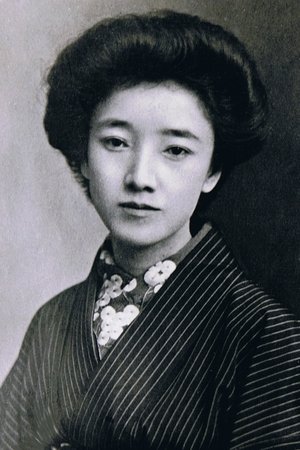
Byakuren Yanagiwara
Personal Info
Known for
Writing
Gender
Female
Birthday
1885-10-15
Day of Death
1967-01-22 (81 years old)
Place of Birth
Tokyo, Japan
Byakuren Yanagiwara
Biography
Byakuren Yanagiwara (October 15, 1885 – February 22, 1967, real name Akiko) was a Japanese poet and novelist. In 1894, she was adopted by a distant relative, Viscount Yorimitsu Kitakōji. She entered the Kazoku Girls' School in 1898. In 1900, she was married to the eldest son of the Kitakōji family, Suketake, at the age of 15, after which she dropped out of school due to her pregnancy. She gave birth to her eldest son, Isamitsu, but in 1905 she divorced, leaving Isamitsu to the Kitakōji family, and returned to her parents' house.
Due to the rigid customs of the time, a divorced daughter was disgraced and could not enter the Yanagiwara family's main residence. In 1908, she transferred to Tōyō Eiwa Girls' School, a Canadian mission school in Azabu, Tokyo, as a boarder to resume her studies, which she had given up due to her marriage and childbirth. There she met Hanako Muraoka, a girl eight years younger than her, who became her "confidante."
In 1910, Yanagiwara met Denemon Itō, a coal mine magnate in Kyushu, who was 25 years older than her, and the following year he married her as his second wife, although she gave birth to her eldest son with Denemon, Kaori, in 1910. Their age, status, and education were all vastly different, and their marriage created a public sensation as a political marriage between the family of a count and a coal mine magnate. The marriage caused Hanako to end her relationship with Yanagiwara, until Yanagiwara wrote a heartfelt letter to her erstwhile friend. She began publishing poems around this time. In 1921, Yanagiwara ran off with a socialist and political activist, Ryūsuke Miyazaki. She publicly declared her love for him in the newspaper, effectively renouncing her husband. This incident came to be called the "Byakuren Incident". At the time, adultery was a crime under the criminal law, punishable by up to two years of imprisonment. Two days after Yanagiwara's published statement, a protest statement by Denemon was published in the Osaka Mainichi Shimbun, making it a sensational incident. The affair came to symbolize rebellion against arranged marriage, patriarchal family structures, and class hierarchy.
Her new father-in-law had a large amount of debt, and their life was difficult. When Ryūsuke fell ill from tuberculosis, Yanagiwara supported her new family by writing. In 1925, her eldest daughter, Fuki, was born. From 1935 she presided over the poetry magazine Kototama.
In 1945, her son Kaori died in World War II. From this experience of hers, she launched the "Kokusai Hibo no Kai" (International Society of Sad Mothers) and launched peace-proclaiming activities in various parts of Japan.
Although she lost her eyesight in her later years, Yanagiwara continued writing poems until her death.
Known For
Crew
(1930)
Song of Youth
Original Story